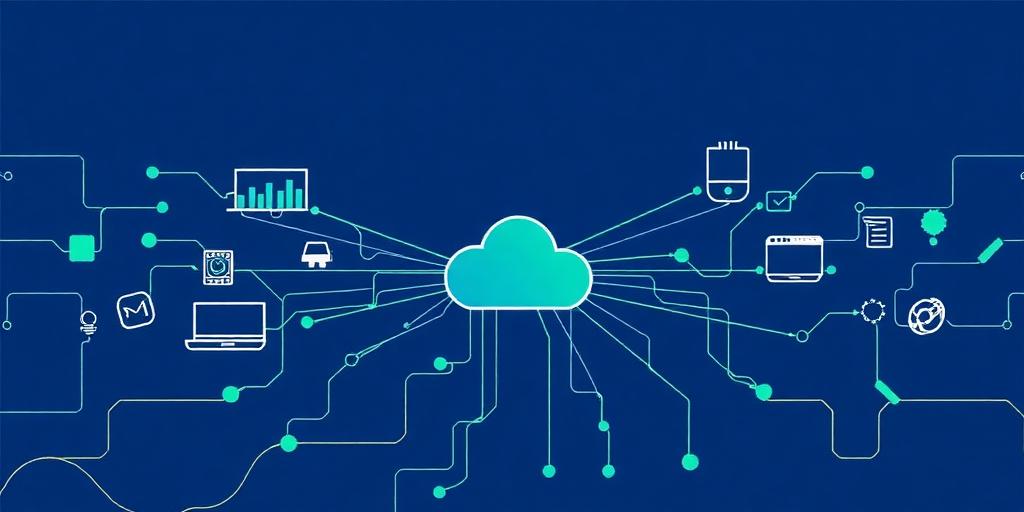How to Choose the Right IoT Platform for Your Business
In today's rapidly evolving digital landscape, the Internet of Things (IoT) has become a cornerstone for businesses aiming to enhance operational efficiency, glean actionable insights, and foster innovation. However, the sheer multitude of IoT platforms available can make the selection process daunting. Choosing the right IoT platform for your business is not merely a technical decision; it's a strategic imperative that will significantly impact your long-term success and growth trajectory. This guide will provide an authoritative framework for navigating this critical choice, ensuring your investment yields maximum returns.
Understanding Your Business Needs and Objectives
Before diving into a comprehensive IoT platform comparison, it's essential to define your specific business requirements. A clear understanding of your use cases, the types of devices you intend to connect, and the data you aim to collect and analyze is paramount. Consider the following:
- Core Use Cases: Are you focused on asset tracking, predictive maintenance, smart facility management, or customer experience enhancement? Each domain may require different platform capabilities.
- Device Ecosystem: Identify the types of sensors, actuators, and gateways you'll be deploying. Compatibility with a wide range of devices and communication protocols is crucial.
- Data Strategy: What kind of data will be generated? How frequently? What are your storage, processing, and analytical needs? This informs the platform's data management and analytics capabilities.
- Regulatory Compliance: Are there industry-specific regulations (e.g., HIPAA, GDPR) that dictate data handling, security, and privacy? Your chosen platform must facilitate compliance.
Key Selection Criteria for Your IoT Platform
Once your business needs are clearly articulated, the next step in IoT platform selection involves evaluating platforms against a set of critical criteria. Prioritizing these factors will help you narrow down the best IoT platform for enterprises of your scale and ambition.
1. Scalability and Performance
Your IoT deployment is likely to grow, often exponentially. A robust IoT platform must be capable of handling an increasing number of connected devices and a rapidly expanding volume of data without compromising performance. Look for platforms designed with cloud-native architectures, distributed processing capabilities, and proven track records of managing large-scale deployments. Scalable IoT platform features ensure your infrastructure can evolve with your business.
2. Security and Reliability
IoT security is non-negotiable. The platform must offer comprehensive security features covering device authentication, data encryption (at rest and in transit), access control, and vulnerability management. High availability and disaster recovery mechanisms are also vital to ensure continuous operation and data integrity. Evaluate the vendor's security certifications and incident response protocols.
3. Connectivity and Protocol Support
A versatile IoT platform should support a wide array of communication protocols (e.g., MQTT, CoAP, HTTP) and connectivity options (e.g., cellular, Wi-Fi, LoRaWAN). This flexibility ensures interoperability with diverse devices and network environments, a critical factor for choosing IoT solution providers.
4. Device Management Capabilities
Effective device management is crucial for the efficient operation of your IoT ecosystem. The platform should offer robust features for device provisioning, remote monitoring, firmware over-the-air (FOTA) updates, diagnostics, and lifecycle management. Simplified device onboarding and management reduce operational overhead significantly.
5. Data Ingestion, Processing, and Analytics
The true value of IoT lies in the insights derived from data. Your chosen platform must provide powerful capabilities for data ingestion from various sources, real-time data processing, and advanced analytics, including machine learning integration. Look for dashboards, reporting tools, and API access to integrate with existing business intelligence systems.
6. Integration and Ecosystem
An IoT platform rarely operates in isolation. It needs to seamlessly integrate with your existing enterprise systems, such as ERP, CRM, and cloud services. Assess the availability of APIs, SDKs, and connectors that facilitate smooth data flow and application integration. A strong partner ecosystem can also be a significant advantage, offering pre-built solutions and support.
7. Cost Structure and Total Cost of Ownership (TCO)
Beyond initial licensing fees, consider the total cost of ownership, which includes deployment, maintenance, data storage, network usage, and support. Some platforms offer pay-as-you-go models, while others have tiered pricing. Analyze the pricing model against your projected usage and scalability plans.
8. Vendor Support and Community
Reliable technical support, comprehensive documentation, and an active developer community are invaluable resources. Evaluate the vendor's service level agreements (SLAs), responsiveness, and commitment to ongoing platform development and innovation.
Conclusion
The decision of how to choose the right IoT platform for your business is a complex one, yet pivotal for digital transformation. By meticulously assessing your specific business needs and rigorously evaluating potential platforms against critical criteria such as scalability, security, integration, and comprehensive data capabilities, you can make an informed choice. Remember, the goal is to select a partner that not only meets your current requirements but also possesses the vision and technological prowess to support your future IoT ambitions. A well-chosen IoT platform serves as the bedrock upon which your intelligent enterprise will thrive.




